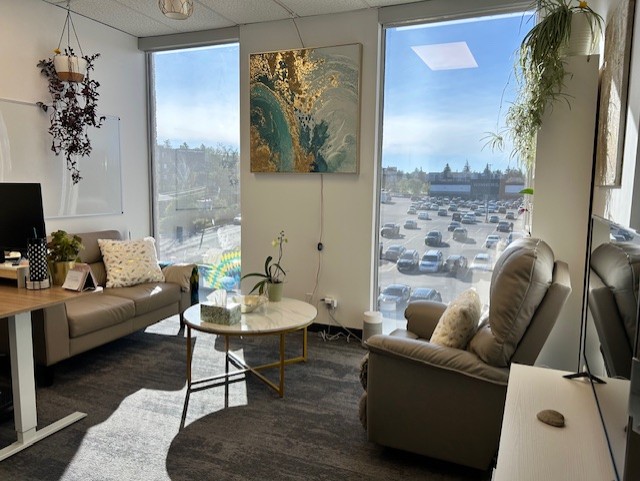1. Getting to Know You
Your first session is an opportunity for both you and your therapist to get acquainted. During this time, your therapist will ask questions to gain a deeper understanding of the challenges or concerns that brought you to therapy. You might discuss things like:
- Your current situation and what you hope to work on
- Your personal and family history, including significant life events
- How you’ve been feeling emotionally, mentally, or even physically
This initial conversation is essential for your therapist to gather insights and help shape a personalized plan for your future sessions. It’s also a time for you to share openly and feel heard. Remember, there’s no pressure to share everything at once—take it at your own pace.
2. Creating a Personalized Plan
Therapy isn’t one-size-fits-all. After learning more about you, your therapist will work with you to craft a plan that addresses your specific goals and needs. Whether you’re looking for strategies to manage anxiety, cope with trauma, or work through personal growth, this plan will be tailored to you. It’s all about finding the right type of therapy and techniques that align with what you’re hoping to achieve.
3. A Safe and Confidential Space
Your therapist’s office is a place where you can express yourself without fear of judgment. Everything discussed during your sessions is confidential, creating a safe space where you can openly share your thoughts, feelings, and experiences. Building trust is a key component of therapy, and establishing a supportive environment will help you feel more comfortable as you move forward.
4. Asking Questions
Just as your therapist will be asking you questions, feel free to ask your own. This is your chance to get to know your therapist’s approach, background, and how they plan to support you. Whether you’re curious about their experience with certain therapeutic methods or how often they recommend sessions, don’t hesitate to ask.
5. Setting Realistic Expectations
Therapy is a journey, and the first session is just the beginning. While you may not leave with all the answers, this initial meeting is an essential first step toward long-term growth. It’s also important to know that therapy requires patience and active participation. You will learn strategies and tools to help you navigate your life outside of sessions, but it’s the consistent work you put into these practices that leads to real change.
6. Building a Strong Therapeutic Relationship
The bond you create with your therapist plays a significant role in the success of your therapy. You can expect to be treated with compassion, respect, and empathy. The stronger the connection you build with your therapist, the more comfortable you’ll feel in exploring deeper issues and working through challenges. Therapy is a collaborative effort, so your active involvement in this relationship will help foster a positive outcome.
7. Practical Tips for Your First Session
To make the most of your first session, here are a few practical tips:
- Arrive early to give yourself a moment to settle in and relax.
- Bring any questions or concerns you might have about the therapy process.
- Be open and honest, but remember, you control what you feel comfortable sharing.
- Reflect on your goals—consider what you hope to achieve by coming to therapy, even if those goals evolve over time.
Moving Forward
After your first session, you’ll likely have a clearer sense of what therapy will look like moving forward. You and your therapist will work together to determine how often you should meet and what steps you’ll take to achieve your goals. Therapy is a space where you can grow, heal, and gain new insights about yourself, and the first session is the gateway to that transformative process.
If you’re ready to take that first step, we invite you to book a free 20-minute consultation with one of our caring professionals at the Calgary Mental Health & Wellness Centre. Let’s work together to help you find balance and peace on your mental health journey.







